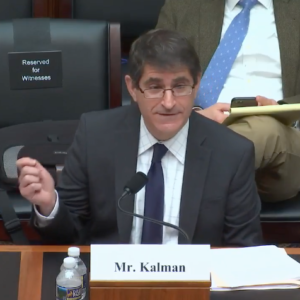Testimony of Dalia F. Martinez, Executive Vice President of Operations International Bank of Commerce before the Subcommittee on Financial Institutions and Consumer Credit, April 27, 2018
Chairmen Leutkemeyer and Pearce, Ranking Members Clay and Perimutter and members of the subcommittee, I am honored to have this opportunity to present testimony today regarding FinCEN’s Customer Due Diligence Rule. I am Dalia F. Martinez, Executive Vice President and Corporate Bank Secrecy Act Officer for International Bank of Commerce. IBC Bank–Laredo is a member of International Bancshares Corporation (NASDAQ: IBOC), a $12.2 billion multi-bank financial holding company headquartered in Laredo, Texas, with 192 branches and more than 294 ATMs serving 90 communities in Texas and Oklahoma. I am speaking to you today representing the Mid-size Bank Coalition of America, the voice of 88 community banks with headquarters in 34 States. MBCA banks are primarily between $10 billion and $50 billion in assets with more than 10,000 branches in all 50 states, with deposits of $1.2 trillion. MBCA banks represent, service, and support millions of customers.




